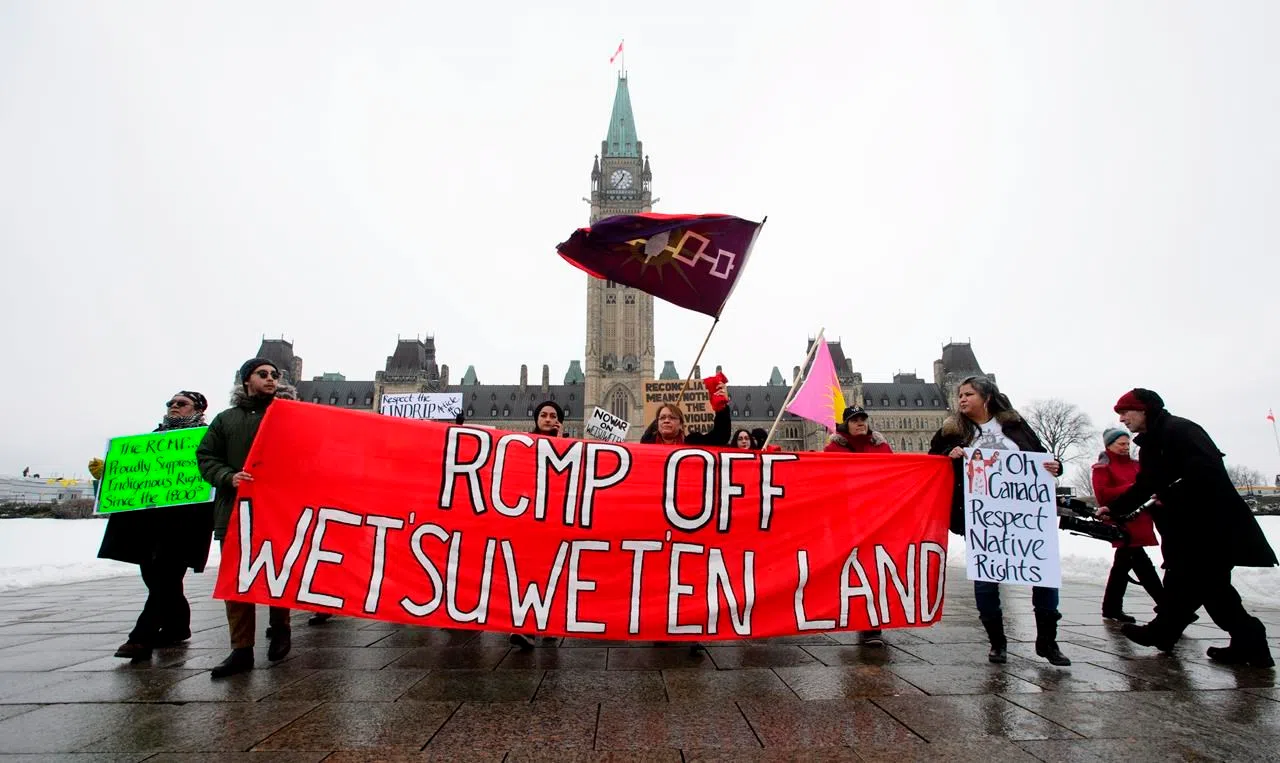
Protests and marches sparked by RCMP arrest at B.C. pipeline protest camp
The arrest of 14 people at an Indigenous blockade in a remote area of northern British Columbia became a flash point Tuesday that sparked protests across the country.
Protesters delayed Prime Minister Justin Trudeau’s speech in Ottawa, stopped traffic in Vancouver and Victoria and prompted a counter protest in front of the headquarters of the company building the pipeline at the centre of the dispute.
RCMP made the arrests Monday at a blockade southwest of Houston, B.C., where some members of the Gidimt’en clan of the Wet’suwet’en First Nation had set up a camp to control access to a pipeline project across their territory.
Police were enforcing a B.C. Supreme Court injunction granted to TransCanada Corp. subsidiary Coastal GasLink. It ordered the removal of obstructions in Wet’suwet’en territory as work gets underway on a $6.2-billion pipeline carrying natural gas from the Dawson Creek area to Kitimat.


